By Bill Lee and Mirna E. Carranza
Social work and other human service professions are heavily dependent on language communication. The words and terms we use with the people with whom we work, as well as with each other, and the general public are crucial. A Glossary of Social Justice Perspectives for Contemporary Practitioners compiled by Bill Lee (retired) and Mirna Carranza of McMaster School of Social Work is an important tool for teaching critical thinking and anti-oppressive approaches to social interventions at any level.
Some of the language that has been developed to enable us to discuss the issues of subjugation, oppression, and liberation can seem challenging. This is not surprising when we consider that the issues they are meant to address often involve complex and sensitive issues of power and privilege. Too often, however, the language is experienced as distancing academics from students, and professionals from the people they are supposed to be assisting. For this reason, the editors have compiled this Glossary of Social Justice Perspectives that tend to be utilized in discussions of the issues and practices that are the stuff of anti-oppressive social work.
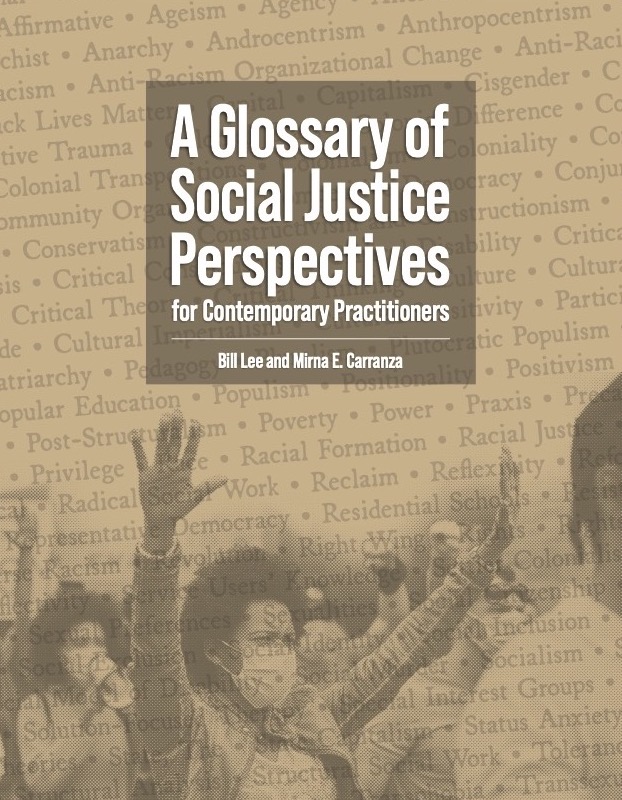
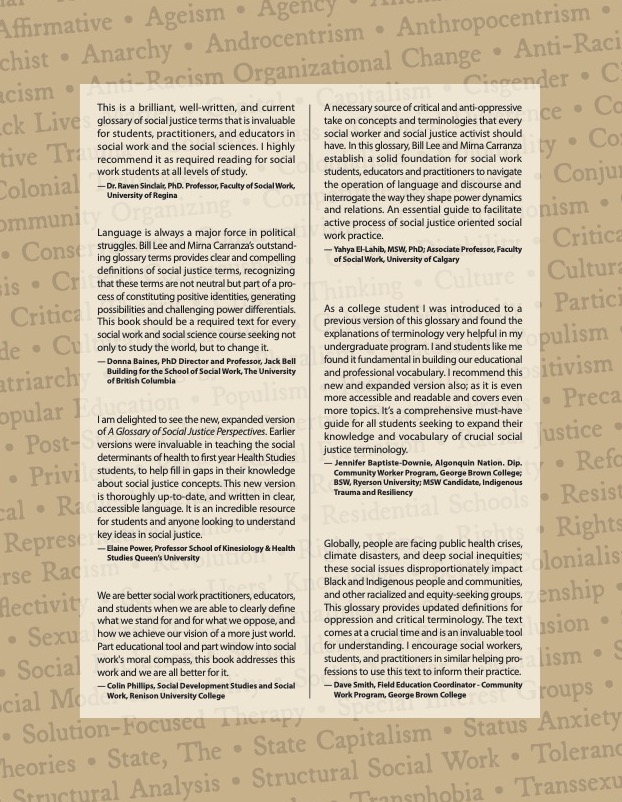
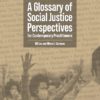
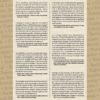
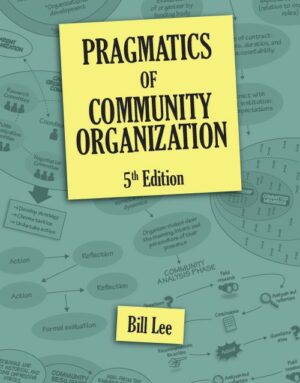
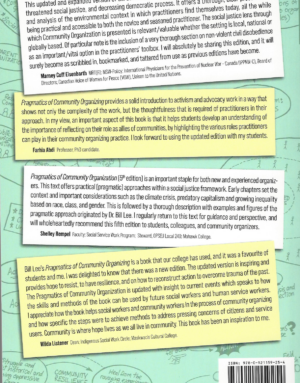

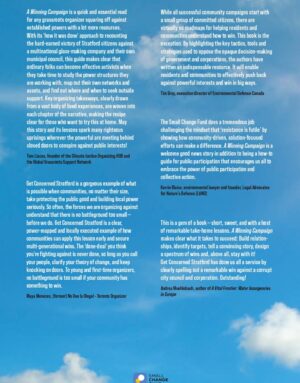
Donna Baines, PhD Director and Professor, Jack Bell Building for the School of Social Work, The University of British Columbia –
“Language is always a major force in political struggles. Bill Lee and Mirna Carranza’s outstanding glossary terms provides clear and compelling definitions of social justice terms, recognizing that these terms are not neutral but part of a process of constituting positive identities, generating possibilities and challenging power differentials. This book should be a required text for every social work and social science course seeking not only to study the world, but to change it.”
Dr. Raven Sinclair, PhD. Professor, Faculty of Social Work, University of Regina –
“This is a brilliant, well-written and current glossary of social justice terms that is invaluable for students, practitioners and educators in social work and the social sciences. I highly recommend it as required reading for social work students at all levels of study.”